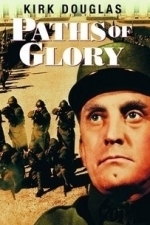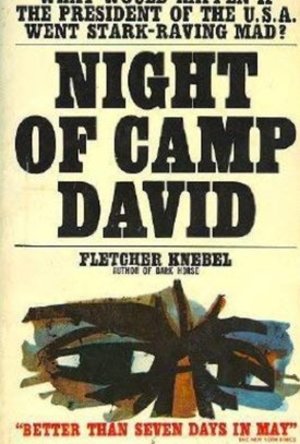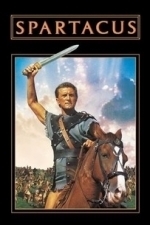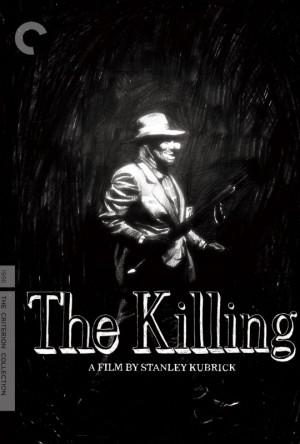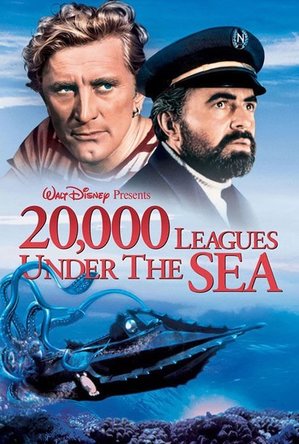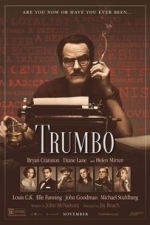Search
BankofMarquis (1832 KP) rated Paths of Glory (1957) in Movies
Feb 18, 2024
Early Kubrick Masterpiece
Dore Schary, then head of production of MGM, like Stanley Kubrick’s first film, THE KILLING (1956) so he hired Kubrick to develop film stories from the studios pile of scripts and purchased novels. Finding nothing the he liked, Kubrick remembered reading Humprhey Cobb’s anti-war novel PATHS OF GLORY and suggested that. Schary (like every other studio exec in Hollywood at the time) turned down the opportunity to make this bleak anti-war film.
When Schary was fired by MGM, Kubrick went to Kirk Douglas (who liked THE KILLING as well and was anxious to work with Kubrick). Using his clout as one of the Major Stars of Hollywood at the time, Douglas got United Artists to agree to make the picture.
Starring Douglas, PATHS OF GLORY tells the WWI tale of a group of soldiers who mutiny when asked to take on a suicide mission to take the impregnable “ANTHILL”.
In this film, Kubrick starts to come into his own as a unique and visionary filmmaker who would insist on take after take until he got the exact shot he was looking for.
The highlight of the film is the 5 minute tracking shot of the troops attacking the Anthill, a tracking shot that films such as SAVING PRIVATE RYAN and 1917 owe a debt to. It is a masterclass of filmmaking from Kubrick.
As for Douglas – who was also used to having complete control of his films – PATHS OF GLORY was a battle of wills between Kubrick and Douglas with each man coming out on top (at times)…to the betterment of the film.
On the acting front, Douglas has never been better as the Commander of the unit that has the mutiny and who decides to defend the soldiers who are on trial for mutiny and cowardice and who quickly realizes that the trial is a sham and that there is no way for him these soldiers to get a fair trial.
Adolph Menjou (the 1937 version of A STAR IS BORN) and George Macready (GILDA) are appropriately blustery and out-of-touch as the Senior Officers who give (and then defend) their impossible orders. Richard Anderson (Oscar in the SIX MILLION DOLLAR MAN) is slimey and slippery as the prosecuting attorney (who knows that the outcome of the trial is a done-deal) while Ralph Meeker (THE DIRTY DOZEN), Joe Turkel (the bartender in THE SHINING) and Timothy Carey (who famously clashed with Kubrick during filming in a calculated attempt to get some publicity for himself and was subsequently fired from the film) are the unfortunate 3 who are put on trial as representatives of their troops while the outstanding performance in this film is fomer child actor Wayne Morris (KID GALAHAD) as drunken Lt. Roget.
Even though this film is about ½ war battle film and ½ a court-room drama, it is the visuals of the folly of war that will stick with the audience long after it is over…and stick with it it does as this film was selected for preservation in the United States Film Registry in 1992 and is still listed in IMDB’s TOP 100 Rated films.
Letter Grade A-
8 stars (out of 10) and you can take that to the Bank(ofMarquis)
When Schary was fired by MGM, Kubrick went to Kirk Douglas (who liked THE KILLING as well and was anxious to work with Kubrick). Using his clout as one of the Major Stars of Hollywood at the time, Douglas got United Artists to agree to make the picture.
Starring Douglas, PATHS OF GLORY tells the WWI tale of a group of soldiers who mutiny when asked to take on a suicide mission to take the impregnable “ANTHILL”.
In this film, Kubrick starts to come into his own as a unique and visionary filmmaker who would insist on take after take until he got the exact shot he was looking for.
The highlight of the film is the 5 minute tracking shot of the troops attacking the Anthill, a tracking shot that films such as SAVING PRIVATE RYAN and 1917 owe a debt to. It is a masterclass of filmmaking from Kubrick.
As for Douglas – who was also used to having complete control of his films – PATHS OF GLORY was a battle of wills between Kubrick and Douglas with each man coming out on top (at times)…to the betterment of the film.
On the acting front, Douglas has never been better as the Commander of the unit that has the mutiny and who decides to defend the soldiers who are on trial for mutiny and cowardice and who quickly realizes that the trial is a sham and that there is no way for him these soldiers to get a fair trial.
Adolph Menjou (the 1937 version of A STAR IS BORN) and George Macready (GILDA) are appropriately blustery and out-of-touch as the Senior Officers who give (and then defend) their impossible orders. Richard Anderson (Oscar in the SIX MILLION DOLLAR MAN) is slimey and slippery as the prosecuting attorney (who knows that the outcome of the trial is a done-deal) while Ralph Meeker (THE DIRTY DOZEN), Joe Turkel (the bartender in THE SHINING) and Timothy Carey (who famously clashed with Kubrick during filming in a calculated attempt to get some publicity for himself and was subsequently fired from the film) are the unfortunate 3 who are put on trial as representatives of their troops while the outstanding performance in this film is fomer child actor Wayne Morris (KID GALAHAD) as drunken Lt. Roget.
Even though this film is about ½ war battle film and ½ a court-room drama, it is the visuals of the folly of war that will stick with the audience long after it is over…and stick with it it does as this film was selected for preservation in the United States Film Registry in 1992 and is still listed in IMDB’s TOP 100 Rated films.
Letter Grade A-
8 stars (out of 10) and you can take that to the Bank(ofMarquis)
William Friedkin recommended Paths of Glory (1957) in Movies (curated)
Christine A. (965 KP) rated Night of Camp David in Books
Mar 27, 2019
I was provided with a complimentary copy of this book so I could give an honest review.
Night of Camp David by Fletcher Knebel was originally published in 1965. Some of the words were outdated but the story itself stood the test of time.
In Night of Camp David a junior senator, James F. MacVeigh, had a private meeting with President Mark Hollenbach at Camp David. Hollenbach begins to bring MacVeigh into his confidence. At first, MacVeigh is honored but he notices odd behavior of the president and wonders if Hollenbach is unstable.
I have never done this but I am going to copy Howard's Goodreads review which he posted 3/15/15. He wrote "I didn't write a review of this book, because in this instance the publisher's blurb is a perfect review that does not spoil the plot. That is rare." https://www.goodreads.com/review/show/1228015367
Because of the current political climate I do not discuss politics. That being said, this is intriguing story and am glad I read it. Just remember it was published in 1965 so some of the attitudes toward women will annoy some people.
I added Fletcher Knebel's 1962 novel, "Seven Days In May" and the corresponding movie starring Burt Lancaster and Kirk Douglas to my want to read/see lists.
Review published on Philomathinphila.com on 3/27/19.
Night of Camp David by Fletcher Knebel was originally published in 1965. Some of the words were outdated but the story itself stood the test of time.
In Night of Camp David a junior senator, James F. MacVeigh, had a private meeting with President Mark Hollenbach at Camp David. Hollenbach begins to bring MacVeigh into his confidence. At first, MacVeigh is honored but he notices odd behavior of the president and wonders if Hollenbach is unstable.
I have never done this but I am going to copy Howard's Goodreads review which he posted 3/15/15. He wrote "I didn't write a review of this book, because in this instance the publisher's blurb is a perfect review that does not spoil the plot. That is rare." https://www.goodreads.com/review/show/1228015367
Because of the current political climate I do not discuss politics. That being said, this is intriguing story and am glad I read it. Just remember it was published in 1965 so some of the attitudes toward women will annoy some people.
I added Fletcher Knebel's 1962 novel, "Seven Days In May" and the corresponding movie starring Burt Lancaster and Kirk Douglas to my want to read/see lists.
Review published on Philomathinphila.com on 3/27/19.
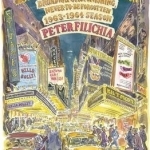
The Great Parade: Broadway's Astonishing, Never-to-be-Forgotten 1963-1964 Season
Book
It was the Broadway season when Barbra Streisand demanded "Don't Rain on My Parade" and Carol...
Dolph Lundgren recommended Spartacus (1960) in Movies (curated)
Pat Healy recommended The Killing (1956) in Movies (curated)
Pat Healy recommended Paths of Glory (1957) in Movies (curated)
Darren (1599 KP) rated 20,000 Leagues Under the Sea (1954) in Movies
Jun 20, 2019
Story: 20,000 Leagues Under the Sea starts when scientist professor Pierre Aronnax (Lukas) gets assigned to investigate a large number of sinkings in the open ocean, joined by his trusted sidekick Conseil (Lorre). When the ship they are travelling on gets sunk by the creature, Peirre, Conseil and sailor Ned Land (Douglas) go in search of rescue finding the Nautilus seemingly abandoned on the ocean.
The Nautilus captained by Nemo (Mason) tests the men before letting them stay aboard learning the wonders from beneath the ocean and taking on the creatures that have been lurking in the deep.
Thoughts on 20,000 Leagues Under the Sea
Characters – Captain Nemo is the mysterious captain of the Nautilus, he doesn’t follow any over the rules of the ocean as he plans his own way to clean it up with his loyal men, he reluctantly lets the three survivors onboard knowing Professor Aronnax could help his work. He does get frustratingly tired of Ned’s behaviour which puts his crew in danger at times. Ned Land is a sailor that is one of the few survivors from the shipwreck, he doesn’t like Nemo and wants to focus on collecting treasure over learning from the ocean. Professor Pierre Aronnax is one of the most famous scientist in the world, he is welcomed on board the ship because of his reputation which impress Nemo, he jumps at the chance to make huge waves in science onboard the ship. Conseil is the assistant to the professor who quickly starts to side with ned when it comes to the methods being shown onboard the vessel.
Performances – This is a strange way to bill the cast, because James Mason is the main character and he is great to watch when it comes to his speeches and ideas for what his character wants. Kirk Douglas is mostly the comic relief which is fun to see for the most part. Paul Lukas fits the posh scientist role in the film which is the one that can simplify things for the audience. Peter Lorre makes for a good sidekick figure for whoever his character helps.
Story – The story here follows the character of Captain Nemo that must educate three new crew members of the wonders of the ocean, showing them the answers are here instead of in how the world is acting. This is one that shows us science need exploring rather than questioning which takes out characters across the world to see things never imagined for the 1800s. While the story does give us entertainment, it would have been nice to see them ship take on a real creature for more than five minutes instead of going into the science versus sailing talk we most explore.
Adventure/Fantasy/Sci-Fi – The adventure side of this film takes our crew around the world to places they would have never seen to see places only few would have, make new discoveries. The fantasy mixes into the sci-fi because of the films setting in the 1800s where the technology isn’t like anything imaginable.
Settings – The film keep sus out at sea for most of the film, it is the interior of the Nautilus which is fantastic creation here show us just what was in the minds of the people.
Special Effects – The effects for the time were great, they show us what could have been achieved with practical effects and clever camera work.
Scene of the Movie – Squid battle.
That Moment That Annoyed Me – Not much creature action.
Final Thoughts – This is a must watch classic of cinema, it reaches levels you might not have expected for the time only to become something you need to admire.
Overall: Must watch classic
https://moviesreview101.com/2019/03/20/20000-leagues-under-the-sea-1954/
The Nautilus captained by Nemo (Mason) tests the men before letting them stay aboard learning the wonders from beneath the ocean and taking on the creatures that have been lurking in the deep.
Thoughts on 20,000 Leagues Under the Sea
Characters – Captain Nemo is the mysterious captain of the Nautilus, he doesn’t follow any over the rules of the ocean as he plans his own way to clean it up with his loyal men, he reluctantly lets the three survivors onboard knowing Professor Aronnax could help his work. He does get frustratingly tired of Ned’s behaviour which puts his crew in danger at times. Ned Land is a sailor that is one of the few survivors from the shipwreck, he doesn’t like Nemo and wants to focus on collecting treasure over learning from the ocean. Professor Pierre Aronnax is one of the most famous scientist in the world, he is welcomed on board the ship because of his reputation which impress Nemo, he jumps at the chance to make huge waves in science onboard the ship. Conseil is the assistant to the professor who quickly starts to side with ned when it comes to the methods being shown onboard the vessel.
Performances – This is a strange way to bill the cast, because James Mason is the main character and he is great to watch when it comes to his speeches and ideas for what his character wants. Kirk Douglas is mostly the comic relief which is fun to see for the most part. Paul Lukas fits the posh scientist role in the film which is the one that can simplify things for the audience. Peter Lorre makes for a good sidekick figure for whoever his character helps.
Story – The story here follows the character of Captain Nemo that must educate three new crew members of the wonders of the ocean, showing them the answers are here instead of in how the world is acting. This is one that shows us science need exploring rather than questioning which takes out characters across the world to see things never imagined for the 1800s. While the story does give us entertainment, it would have been nice to see them ship take on a real creature for more than five minutes instead of going into the science versus sailing talk we most explore.
Adventure/Fantasy/Sci-Fi – The adventure side of this film takes our crew around the world to places they would have never seen to see places only few would have, make new discoveries. The fantasy mixes into the sci-fi because of the films setting in the 1800s where the technology isn’t like anything imaginable.
Settings – The film keep sus out at sea for most of the film, it is the interior of the Nautilus which is fantastic creation here show us just what was in the minds of the people.
Special Effects – The effects for the time were great, they show us what could have been achieved with practical effects and clever camera work.
Scene of the Movie – Squid battle.
That Moment That Annoyed Me – Not much creature action.
Final Thoughts – This is a must watch classic of cinema, it reaches levels you might not have expected for the time only to become something you need to admire.
Overall: Must watch classic
https://moviesreview101.com/2019/03/20/20000-leagues-under-the-sea-1954/
Gareth von Kallenbach (980 KP) rated Trumbo (2016) in Movies
Aug 6, 2019
What is it that makes, not a great, but even a good biopic? It is certainly no enviable task, trying to condense decades of a person’s life into a mere two hours. Choosing what to keep and what to leave, stringing events together so that they feel as though they are one complete narrative opposed to a series of vignettes. And then there are the inevitable purists who will write off the entire product based on a single detail either left out or composited due to running time or budgetary restrictions. Over the years, I have found myself wrestling with my opinion of Braveheart. Do I enjoy it for its epic qualities, or do I cast it aside as the wretched historical inaccuracies fly in the face of what is one of the most important times in a country’s past?
The answer is simply, and stolen from another great historical epic, are you not entertained? Film can and should be powerful and informative. It can and should influence our thinking and encourage an emotional response, but above all, it should entertain. Trumbo does all of the above, ticks all the necessary boxes on the list of what makes a great biopic and whatever historical inaccuracies lie within be damned. Director Jay Roach, writer John McNamara and an ensemble so good it has to be seen to be believed have made, if not the best biopic of the year (that distinction still stays with Steve Jobs for now), then certainly the most enjoyable.
Where I find myself in reviewing Trumbo is trying not to sound monotonous in singing its high praises. Whether you’re interested in a message or not, because there is a good one in there, it’s a film that demands to be seen just on the strength of the cohesiveness that comes from the writing, the acting and (I still can’t believe I’m about to write this about the man who made all three Austin Powers movies) the directing.
I could prattle on endlessly about how overwhelmingly good this cast is, but the names speak for themselves. Bryan Cranston showcases that he is not just the best thing on television, but also a big-screen powerhouse. Helen Mirren, in her inimitable fashion and with beautiful understatement, is a force to be reckoned with, seething venom and self-righteousness. Louis C.K. finally breaks out of his stand-up comic persona to give a truly heartfelt performance played with surprisingly restrained vulnerability. The chemistry between him and Bryan Cranston will no doubt leave you wanting more. And John Goodman… well, it’s John Goodman. He continues to prove that no matter how small a part he has to play, it will stay with you long after you’ve left the theater. Hands down, and these are only four out of a dozen terrific performances, there hasn’t been an ensemble this stunning since L.A. Confidential.
It should also be mentioned that Michael Stuhlbarg, David James Elliott and Dean O’Gorman, who portray Edward G. Robinson, John Wayne and Kirk Douglas respectively, are unquestionably destined to go down as the unsung heroes of Trumbo. Their efforts, not just to imitate but to fully realize these Hollywood stars of a by-gone era, are a further complement to inspired casting and commitment to honoring the lives of the people portrayed on screen.
In short (and well done for making it this far through monotonous and truly well-deserved praise), if you have to see one film this Thanksgiving season that doesn’t star Tom Hardy as England’s notorious Kray brothers, see Trumbo.
The answer is simply, and stolen from another great historical epic, are you not entertained? Film can and should be powerful and informative. It can and should influence our thinking and encourage an emotional response, but above all, it should entertain. Trumbo does all of the above, ticks all the necessary boxes on the list of what makes a great biopic and whatever historical inaccuracies lie within be damned. Director Jay Roach, writer John McNamara and an ensemble so good it has to be seen to be believed have made, if not the best biopic of the year (that distinction still stays with Steve Jobs for now), then certainly the most enjoyable.
Where I find myself in reviewing Trumbo is trying not to sound monotonous in singing its high praises. Whether you’re interested in a message or not, because there is a good one in there, it’s a film that demands to be seen just on the strength of the cohesiveness that comes from the writing, the acting and (I still can’t believe I’m about to write this about the man who made all three Austin Powers movies) the directing.
I could prattle on endlessly about how overwhelmingly good this cast is, but the names speak for themselves. Bryan Cranston showcases that he is not just the best thing on television, but also a big-screen powerhouse. Helen Mirren, in her inimitable fashion and with beautiful understatement, is a force to be reckoned with, seething venom and self-righteousness. Louis C.K. finally breaks out of his stand-up comic persona to give a truly heartfelt performance played with surprisingly restrained vulnerability. The chemistry between him and Bryan Cranston will no doubt leave you wanting more. And John Goodman… well, it’s John Goodman. He continues to prove that no matter how small a part he has to play, it will stay with you long after you’ve left the theater. Hands down, and these are only four out of a dozen terrific performances, there hasn’t been an ensemble this stunning since L.A. Confidential.
It should also be mentioned that Michael Stuhlbarg, David James Elliott and Dean O’Gorman, who portray Edward G. Robinson, John Wayne and Kirk Douglas respectively, are unquestionably destined to go down as the unsung heroes of Trumbo. Their efforts, not just to imitate but to fully realize these Hollywood stars of a by-gone era, are a further complement to inspired casting and commitment to honoring the lives of the people portrayed on screen.
In short (and well done for making it this far through monotonous and truly well-deserved praise), if you have to see one film this Thanksgiving season that doesn’t star Tom Hardy as England’s notorious Kray brothers, see Trumbo.
